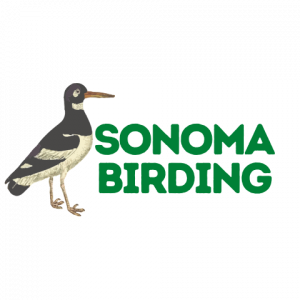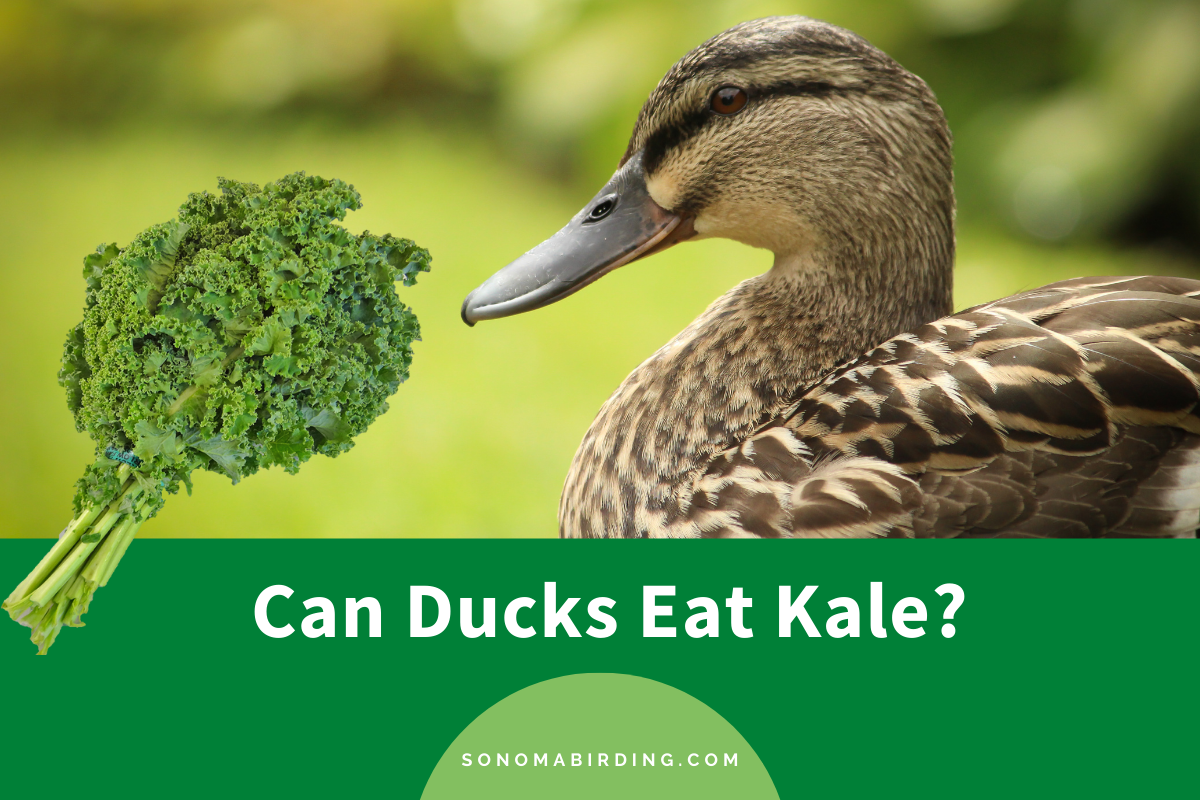We often come across the dilemma of should we feed “this” or “that” to our ducks. In such cases, the process to determine whether your duck can or will like to eat a certain food must be thoroughly carried out so that no mistakes are made. It is natural to worry about their health and wonder what to feed them. Will kale be a good food option for ducks?
Can ducks eat kale? Yes, ducks can consume kale. Kale is a leafy vegetable rich in a variety of nutrients, all of which can benefit ducks. Ducks can easily eat both raw and cooked kale, although raw kale is healthier for them. In addition to kale leaves, their stems are also safely edible to them. All you need to be careful about is feeding them these veggies in moderation.
Before we come to any conclusion about feeding kales to ducks, let’s study what kind of foods are appropriate for waterfowl. Just like any other creature, ducks also demand a healthy diet that constitutes all the nutrients.
The primary diet of a duck must constitute proteins, carbohydrates, vitamins, and minerals. Does kale contain any of these nutrients for your feathered pets? And if yes, how much should you feed them? If you stay with us till the end of this article, you will find answers to all these questions and more.
Do ducks like eating kale?
As ducks owners, we always want them to enjoy their lives, including their meals and snacks. So, before you plan on including kale into your pet’s diet, why not make sure if they like it first?
It is not a mystery that ducks enjoy eating seedy fruits, such as berries, bananas, watermelons, plums, pears, and grapes. They also consume grains and vegetables, including cucumbers, broccoli, peas, and corn. Moreover, squash vegetables such as kale, lettuce, and cabbage are also great treats for them.
Whether or not your duck will enjoy eating kale depends on how you add these veggies into their diet. If you want your pets to like kale, you must slowly introduce it to these waterfowls by feeding them in tiny proportions or dropping it into their water. When you keep doing it for a couple of weeks, the ducks will get accustomed to kale and start eating it voluntarily.
Does kale hold any nutritional value for ducks?
In the last section, we discussed how to best introduce kale into your pet’s diet for them to like it. Now, it’s time to thoroughly understand the nutritional composition of kale so that you can decide whether or not your duck should eat it.
Kale has several nutrients in it that are necessary for a duck’s diet. It is rich in minerals that strengthen the duck’s body and help them lay healthy eggs. Let’s take a look at the various minerals found in Kale.
- Potassium
- Calcium
- Sodium
- Phosphorous
- Magnesium
- Vitamin E
- Vitamin K
- Vitamin C
- Thiamin
- Riboflavin
- Niacin
All of the above minerals contribute to building a healthy duck body alongside protein and carbs. These are effectively essential for strengthening their bones, but it also serves several other health benefits. The next section is devoted to solving your dilemma of how beneficial kale is for the ducks.
Health benefits of kale for ducks
So far, we have already established that kale is rich in a number of nutrients. In this section, we’ll study how these vitamins and minerals are beneficial to ducks. Keep reading to learn more:
Stronger bones and eggshells
We all know that calcium and phosphorus are crucial for our bone health; the same applies to ducks. The high proportion of calcium and phosphorus present in kale accounts for their healthier bones.
Additionally, phosphorus also helps the ducks in the formation of hard and strong eggshells. You might’ve noticed how calcium-deficient ducks lay eggs with thin shells that are fragile and easily breakable. Moreover, weak eggshells can also lead to bacteria entering inside the eggs, which might result in sterilization.
Good heart health
Kale helps control the blood pressure and cholesterol of the ducks, just like it does for us. The potassium content in these leafy greens actively keeps a check on the ions exchange and blood flow, leading to good heart health.
Moreover, kale also contains sodium ions that play a key role in regulating adequate blood circulation. With the combination of potassium and sodium, kale assures the maintenance of good heart health for the ducks.
Improves vision
It might come as a surprise to many, but ducks have the best vision among most waterfowls. Their eyes can rotate up to 340 degrees and can see all colors. Moreover, their typical eye structure also helps them locate objects near and away from them concurrently. Isn’t it necessary for these birdies to conserve their powerful vision?
Kale contains Vitamin A in abundance, which, as we already know, is an important mineral for good eye health. Thus, there shouldn’t be much hesitation in feeding kale to the ducks.
Boosts immunity
Like many other birds, ducks cannot produce Vitamin C inside their bodies either. It means they have to obtain this vitamin from external sources, i.e., Vitamin-C-rich food. Since kale, being a superfood, contains plenty of Vitamin C, eating it can be very beneficial for their immune health.
Strong immunity is a crucial factor for the fowls because they lay more eggs than the other birds, as a general rule. And in order to lay stronger eggs, they need a stronger immune system. Thus, feeding them kale can do wonders for their immunity.
With this, we come to the conclusion that kales indeed have a lot to offer your feathered pets in terms of nutrition. So, if a healthy snack is what you’re looking for, kale can do the job perfectly.
What about the stem of kale? Can ducks eat them?
So far, we’ve learned that kales hold a great nutritional value for the ducks and can make a great occasional treat for them.
But how would you find out which parts of the vegetable ducks can eat? All of us know that kale leaves are the edible part of their plants. But what about the stems? Can ducks eat them or not?
Yes, ducks can eat kale stems, and they are as nutritious as the leaf itself. Kale stems can be chopped into tiny pieces and fed to the ducks. These stalks are high in fibers and help maintain the dietary needs of ducks.
Raw or cooked kale: Which one is healthier for ducks?
How many of you practice eating raw veggies? I’m sure not many will answer “yes” to that question. Vegetables, when eaten raw, can be difficult to digest, particularly for humans, who have been eating cooked food for thousands of years now.
However, animals and birds that live in the wild have different dietary needs than ours. They can easily eat raw foods that we can’t. So, what about kale? Should you feed your duck raw or cooked kale? Let’s find out.
Raw kale is the best form of kale for ducks. As ducks have soft beaks, they usually feed on small and soft vegetables that do not require much effort. Additionally, raw kale is an excellent source of fiber and minerals for ducks when fed in regulated quantities.
And if you’re wondering if it’s a good idea to feed them cooked kale, the answer is no. When you cook kale, it loses many of its heat-sensitive nutrients, resulting in a lower nutritional value. Additionally, it’s exposed to ingredients like salt, pepper, oil, etc., which are absolutely not meant for the ducks to digest.
However, it is not advised to feed kale to the ducks frequently. Neither one should depend entirely on kale as the primary source of nutrients. A balanced diet consisting of all types of food must be included in a duck’s lifestyle.
What type of kale do ducks prefer?
We know that the flora has gifted us with diversified types of kale. But not all of them are suitable for ducks, are they? In this section, we will learn about the kale type that is most favorable for ducks and their health.
Here’s a list of the kale that ducks can feed on.
- Curly Kale
- Premiere Kale
- Lacinato Kale
- Ragged Jack Kale
- Dinosaur Kale
- Baby Kale
How frequently should you feed kale to ducks?
Before you make up your mind to start feeding kale to the ducks, read this section carefully. We have already mentioned that kale is not an ideal everyday diet for the duck earlier. In this section, we will find out why.
Although kale is rich in fiber and minerals and contributes largely to the ducks’ health, you cannot feed it to them every day. When fed too frequently, it will result in a nutritional imbalance in your pet’s diet in the long run.
Additionally, while the high fiber and water content of kale can benefit your ducks in moderation when they overeat it, it can lead to loose stool or even diarrhea. Therefore, the ideal way of feeding kale to your duck is to offer them 2-3 leaves twice a week.
Can Muscovy Ducks eat kale?
Muscovy Ducks are the scavengers of the waterfowl world. They love eating fruits, vegetables, grains, and insects; basically, anything they can find in their vicinity. So, if you’re wondering whether you should or shouldn’t feed kale to the Muscovy Ducks, the answer is yes. These ducks will enjoy eating kale just the same as any other duck species.
What about ducklings? Should they eat kale?
We are sure that adult ducks can be fed kale in regulated proportions, but what about their younger ones? Do they possess a digestive system strong enough to break down high-fiber food like kale? Well, the ideal answer to this would be no.
All ducklings under the age of one month should strictly be fed the commercial feed, which is designed to meet all their nutritional requirements of that stage. Even when they grow older than one month, their ideal diet should consist of more protein than fiber, which is the opposite of kale’s nutritional value.
Ducklings need an abundance of protein for their healthy growth. If you feed them fiber-rich food at this point, it can potentially result in indigestion; add to that kale’s high water percentage, and you’re putting them at risk of diarrhea.
Therefore, if you want to add kale to your duckling’s diet, you must wait for at least four months and then start introducing it to them slowly, in small quantities.
Conclusion
With this, we reach the end of our article. Today, we’ve learned that kale, a leafy green that we humans consider a superfood, is also a great choice to offer to your feathered pets as a healthy snack. Rich in a number of micro and macronutrients, these veggies can benefit your duck’s health in several ways. However, the high fiber and water content can create health problems for your ducks just as easily if not fed in moderation.
Duck Symbolism and Meaning (Totem, Spirit, and Omens)

